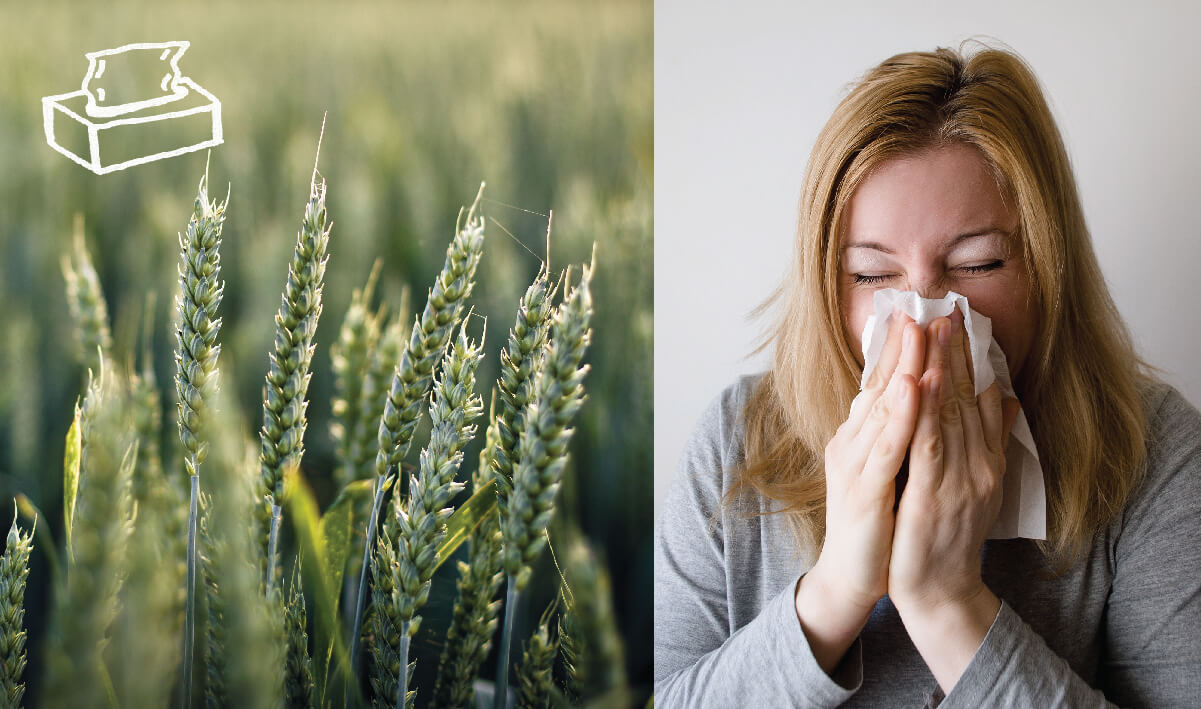
Practical reminders, common sense approaches and clever solutions to avoid everyday challenges and live your best life.
People are allergic to all kinds of things: dust, pollen, plants, medications, foods, insect bites, animal dander; the list goes on. And each person reacts differently to their particular allergen. Whether you're plagued with itchy eyes or a runny nose, don't let your allergies sideline your otherwise-healthy self. Take control by learning how to avoid and reduce your triggers and how to treat your symptoms.

Avoiding and Reducing Triggers
The first thing you need to know is what you're allergic to. Seasonal and environmental allergies and food intolerances often have symptoms in common but very different triggers.
Seasonal Allergies
Seasonal allergies occur in all seasons except winter, show up at the same time every year and are triggered by pollen from trees, grasses or weeds. What should a person with seasonal allergies do? It's simple: Stay away from the pollen. Here are some tips to help you do that:
- Sleep with the windows shut and the air conditioner on. The peak pollination time for trees is between 4 am and 6 am, so do what you can to keep it out of your house.
- Along the same vein, try to stay indoors until at least 10 am to give that pollen a chance to settle out of the air.
- Shower, wash your hair and change your clothes when you return home after being outside. This keeps you from tracking pollen all over your house, especially your bedroom. If you're not sleeping alone, ask that person to shower as well.
- Bathe your pets more during allergy season if they spend time outside.

Environmental Allergies
These allergens can trigger a reaction year-round and are found in the environment all around you. Some are easier to avoid than others; dust and pet dander can be anywhere, but if your allergy is to latex rubber or cosmetic ingredients, you can more easily make sure you never encounter them.
To limit your exposure to dust and dander:
- Use dust mite covers on your mattress and pillows
- Keep pets out of your bedroom
- Remove carpeting from your house
- Keep the filters on your furnace and AC clean
Food Intolerances
We're not going to talk about food allergies here. They can be another whole level of health risk, and if you have a severe one, you and your doctor will have already mapped out a health strategy.
While food allergies cause an immune system response, intolerances to foods such as lactose, gluten and MSG can cause a digestive system response. They are very common and can cause nausea, vomiting, painful cramping and diarrhea. Here are some tips to avoid unnecessary discomfort.
- Read food labels.
- Know other names for your allergens. For example, milk may be listed as casein or whey.
- When eating away from home, don't hesitate to let your host or waiter know about your food trigger.
Treating Symptoms
Sometimes, despite your best efforts, your allergy gets triggered. Thankfully, most allergic reactions are mild, and home treatment can relieve many of the symptoms.
Over-the-Counter Meds
An OTC antihistamine that doesn't make you drowsy is usually the best choice for treating sneezing, itching, a runny nose and watery eyes. For seasonal allergies, start taking allergy medication before symptoms start and use it consistently throughout the season. You may also want to use a decongestant to relieve nasal congestion, runny nose and sinus pain.
Other Ways to Soothe Your Eyes
- Lay a cool, wet cloth over your eyes.
- Wear glasses instead of contact lenses so irritants don't get trapped on your eyes.
Other Ways to Soothe Your Nose
- Breathe in steam from a boiling pot or a hot shower.
- Use a saltwater nasal rinse to clear out irritants. A neti pot is perfect for this.
Don't let allergies prevent you from going about your day and, especially, don't let them trap you indoors. Know your triggers, figure out how to avoid them, and if symptoms occur, treat them quickly. You got this!


